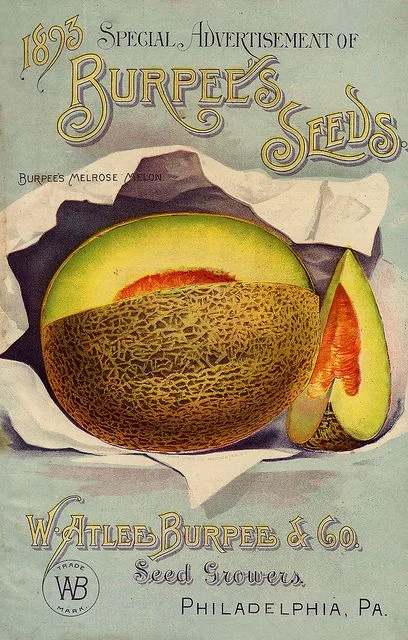When Pharmaceuticals & Agriculture Meet
Big Pharmaceutical company Bayer bought the Agri-Chemical giant Monsanto today with an all-cash deal of $60 billion, following its announcement back in 2016. But what does this merger mean for the consumer?
Monsanto is behind many of the current politically-charged agriculture topics: genetically modified organisms (GMOs), which Monsanto invented; herbicides, which include its Roundup or glyphosate, that have potential health hazards; seed patents which it continues to defend against small farmers. Bayer was already a part of this before the new deal, with its CropScience division. It's the pioneer of what is now considered Big Agriculture.
And Bayer confirmed that this charged name of Monsanto will be nixed, in seeming hopes of removing its political associations. Now, the world's largest drug & pesticide producer will be one with the world's premier seed company.
This is in movement with an agriculture industry and beyond that is already dominated by big food & drug corporations.
The Big Food Industry
The organic food movement, for instance, has become an industry with annual sales over $32 billion. These are generated by the nation's largest food or Fortune 500 companies, including General Mills, Coca-Cola, Kellogg, Hormel, and Perdue, all of which have acquired smaller organic providers.
Stonyfield is owned by Danone; Tom's of Maine is owned by Colgate-Palmolive; Earthbound Organics by White-Wave; and Naked Juice by Pepsi, just to name a few.
Many advocates, including Myra Goodman—the co-founder of Earthbound Farm—welcome these changes. They claim that farmers would benefit from the rising demand and consumers would consequently see prices drop. This is in contrast with the continuing association of organic food with high-end markets like the Whole Foods Market.
Goodman, in her recent TED talk, argued that their acquisition has benefited everyone by increasing accessibility. “We don’t want organic to be an exclusive club,” she told the audience, because “the benefits o organic farming are just too huge.”
"It will bring organic to a whole new economic stratum that our farmers' markets and natural food stores have been unable to reach,” said Bob Scowcroft, executive director of the Organic Farming Research Foundation in a statement to Washington Post. I also posed this point in my recent event at The Wing and in my book. In a world in which many face inaccessibility of fresh foods in food deserts, these acquisitions could expand availability.
"Sadly, less than one percent of our farmland is organic - that means about 99 percent is still awash in conventional agricultural chemicals,” Goodman said. The produce that does even reach these populations then come with a heftier price, both financially and in potential health risks.
This is in efforts towards the democratisation of not just organic food but fresh produce in general.
But others are worried that shifts in organic production can have larger, unforeseen impacts. Michael Pollan, the author of “Omnivore’s Dilemma” and a journalism professor at the University of California, Berkeley, is concerned. He believes that the need to meet market demands will decrease quality, weaken standards, and damage the environment.
"I don't think [consumers] have any idea just how industrialized it's becoming," said Pollan to the Washington Post, pointing to the "downsides to organic farming scaling up to this extent."
Other critics say that the movement is becoming blind to its roots in environmentally-conscious roots. With the expansion, they argue, farmers lose direct connexion with consumers, their food, and increase their carbon footprint through the wider travel of produce. Others, including Nature’s Path Vice President Arjan Stephens, stated to the Chicago Tribune that the long-term effects “often come with a diluted product line, a change in company values, and decisions based solely on profits, not people."
The Larger Issue & What to Do
The current news of the Bayer-Monsanto acquisition pointedly then illustrate the larger issue of Big Agriculture. Here at The Thirlby, we combine our awareness & research with empathy. We are aware that our audience is composed of people beyond the economic and social means of living in a city with supermarket chains & farmer's markets.
If you do have the means for these, we suggest shopping small at your local farmer's market, which you can read more about here.
When you are gardening or planting at home, follow this guide for natural gardening.
When and if you can, support smaller businesses for personal care. We love this round-up by our friends at Black Girl in Om of black-owned skincare products.
To take action, donate your time or money if possible to non-profit organisations fighting for accesibility and rights, such as the Coalition for Immokalee Workers (CIW), Environmental Working Group (EWG), Martha's Table, Farmaid, Center for Food Safety, and Oxfam.
We Want to Hear From You!
What are your thoughts on the acquisition, farming, and as a consumer? We would love to hear from you below or directly via e-mail, to be featured in our Opinions pages.
About the Author
Almila Kakinc-Dodd is the Founder, Editor-in-Chief of The Thirlby. She is also the author of the book The Thirlby: A Field Guide to a Vibrant Mind, Body, & Soul. She is currently pursuing her Master’s in Nursing as a Dean’s Scholar at Johns Hopkins University. Her background is in Anthropology & Literature, which she has further enriched through her Integrative Health Practitioner training at Duke University. She lives in the Washington, D.C. Metro Area, where she regularly contributes to various publications. She is a member of Democratic Socialists of America and urges others to join the movement.



